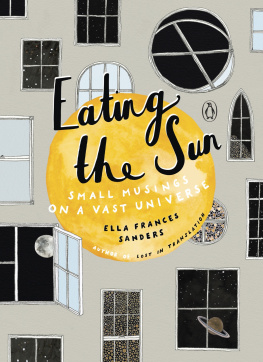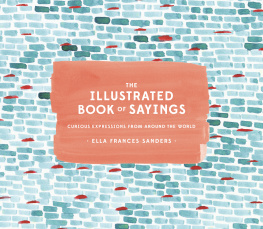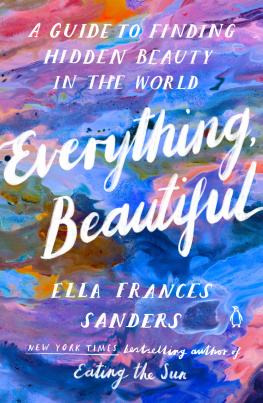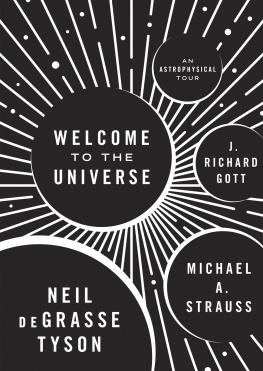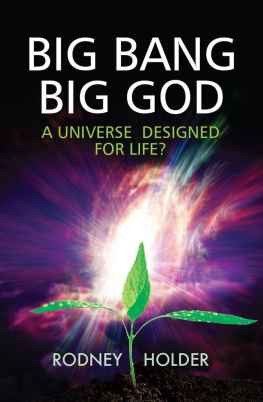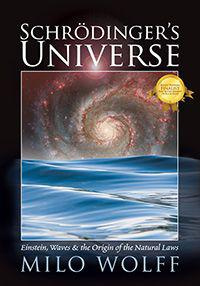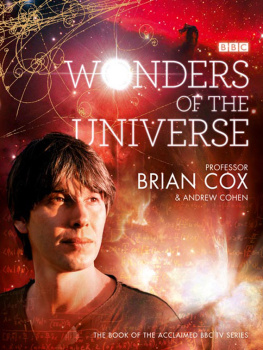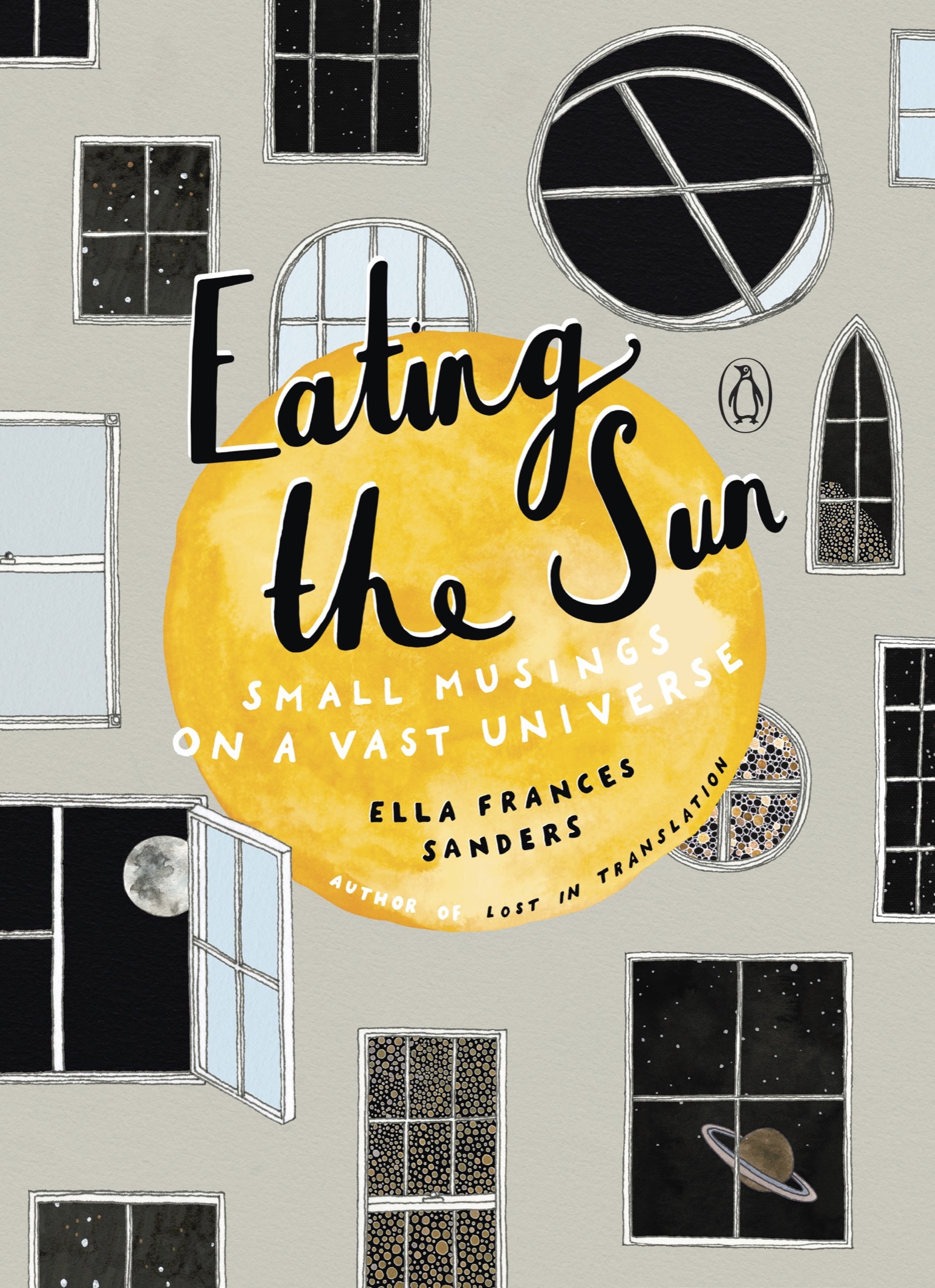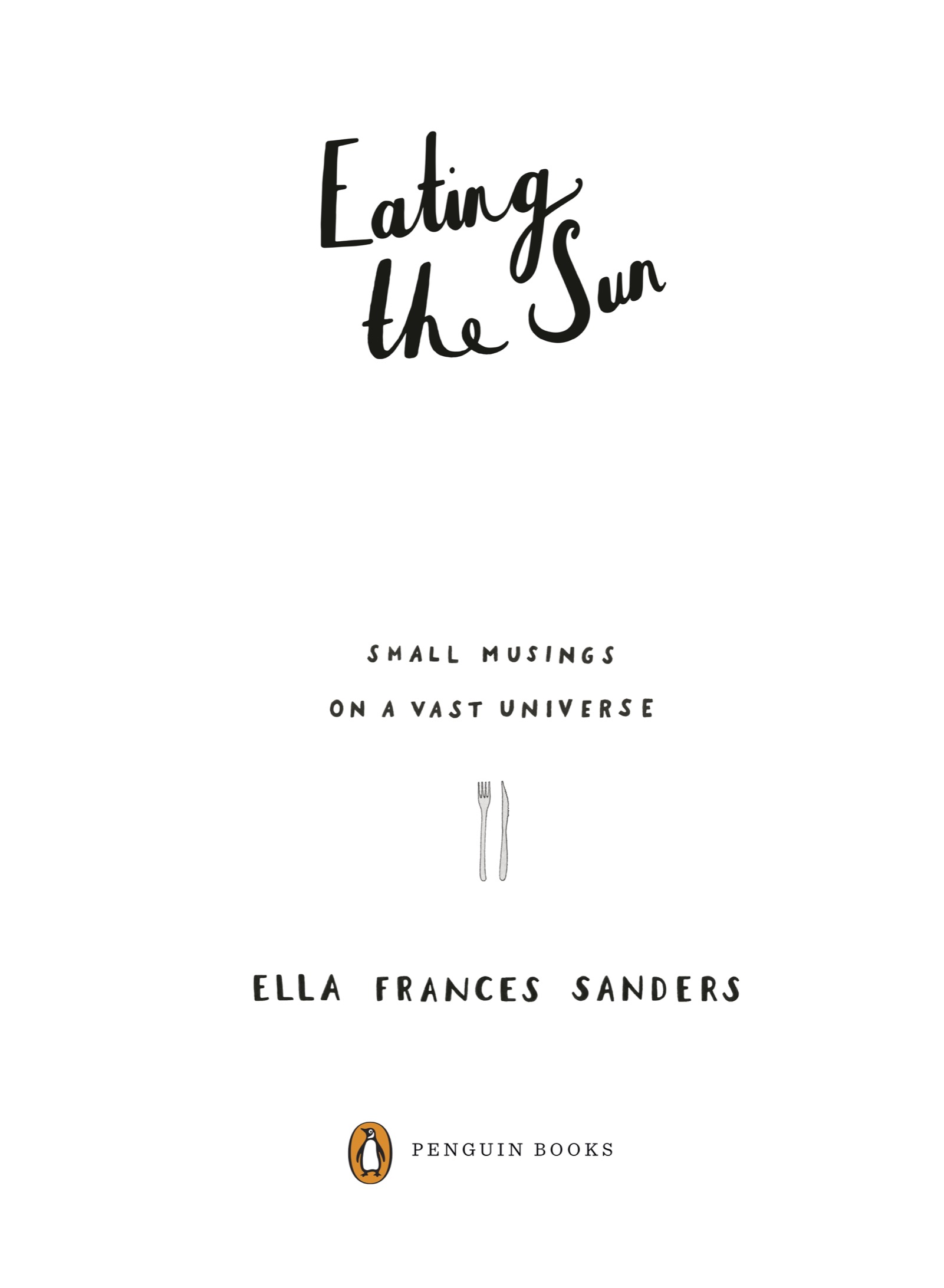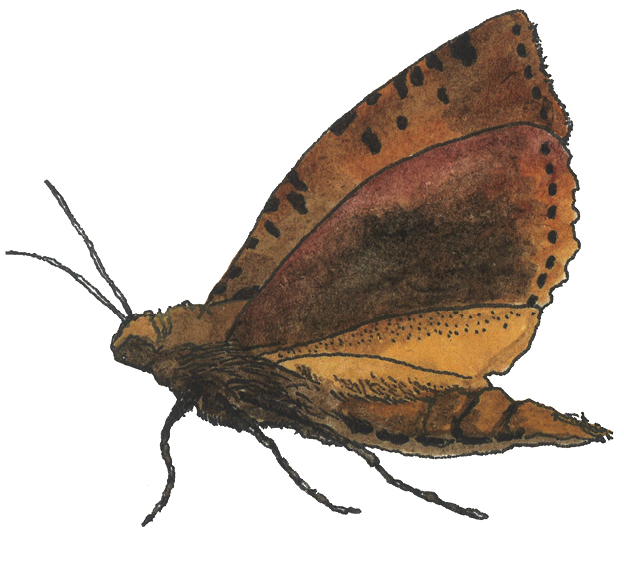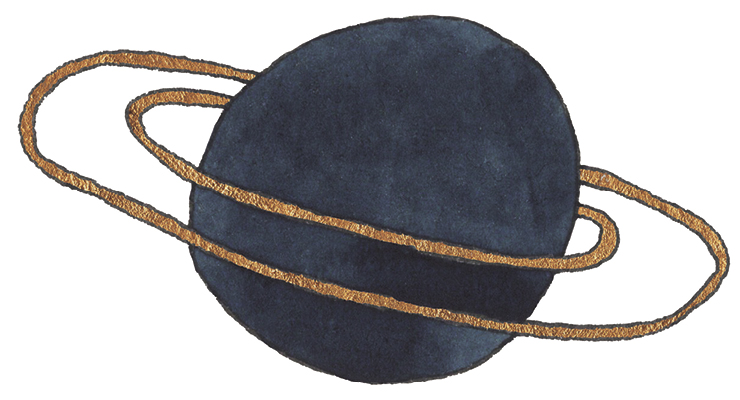Penguin supports copyright. Copyright fuels creativity, encourages diverse voices, promotes free speech, and creates a vibrant culture. Thank you for buying an authorized edition of this book and for complying with copyright laws by not reproducing, scanning, or distributing any part of it in any form without permission. You are supporting writers and allowing Penguin to continue to publish books for every reader.
Names: Sanders, Ella Frances, author.
Title: Eating the sun : small musings on a vast universe / Ella Frances Sanders.
Description: New York, New York : Penguin Books, an imprint of Penguin Random House LLC, [2019]
Identifiers: LCCN 2018025207 (print) | LCCN 2018027516 (ebook) | ISBN 9780525504948 (ebook) | ISBN 9780143133162 (hardcover)
Subjects: LCSH: AstronomyJuvenile literature. | AstronomyMiscellanea. | AstrophysicsJuvenile literature. | AstrophysicsMiscellanea. | UniverseJuvenile literature. | UniverseMiscellanea.
INTRODUCTION
A sense of wonder can find you in many forms, sometimes loudly, sometimes as a whispering, sometimes even hiding inside other feelingsbeing in love, or unbalanced, or blue.
For me, it is looking at the night for so long that my eyes ache and Im stuck seeing stars for hours afterwards, watching the way the ocean sways itself to sleep, or as the sky washes itself in colors for which I know I will never have the wordsa world made from layers of rock and fossil and glittered imaginings that keeps tripping me up, demanding I pay attention to one leaf at a time, ensuring I can never pick up quite where I left off.
When one is considering the universe, unseen matter, our small backyard of the stuff, I think it is important, sensible even, to try and find some balance between laughter and uncontrollable weeping.
Cry because we cannot even begin to understand how beautiful it is, cry because we are terribly flawed as a species, cry because it all seems so shockingly improbable that maybe our existence could be nothing but a dreamscapecelestial elephants in rooms without walls.
But then? Surely, we can laugh. Laugh because being riddled head-to-toe with human emotions while trying to come to terms with just how indisputably tiny we are in the grand scheme of things, makes absolutely everything and everyone seem quite ridiculous, entirely farcical. We have heads? Ridiculous! There are arguments about who is in charge here? Ridiculous! The universe is expanding? Ridiculous! We feel it necessary to keep secrets? Ridiculous.
A lot of our time is spent trying to tie up loose ends, trying to shape disorder into something recognizably smooth, trying to escape the very limits that hold us close, happily ignoring rough edges and the inevitable. We separate ourselves out into past, present, and future, if only to show that we have changed, that we know better, that we have understood something inherent; if only to draw neat lines from start to finish without looking back.
The problem is that chaos is always only ever sitting just across the table, frequently glancing up from its newspaper, from its coffee cup filled with discolored and imploding stars. Because chaos too waits. Waits for you to notice it, for you to realize its the most dazzling thing youve ever seen, for all of your atoms to collectively shriek in belated recognition and stare, mouth open, at how exquisitely embedded it is in everything. Because we are not designed to be more orderly than anything else; seams have a tendency to come apart with timeyou and the universe are the same in this way, which makes for a delicately overwhelming struggle.
So, then, if you cant ever end things neatly, cant ever put them back quite the way you found them, surely the alternative is to remain stubbornly carbonated with possibility, to never rest from your rotation. To keep assembling stories between us, stories about how everything was everything, about how much we loved.
My hope is that this book is a small part of one such story.

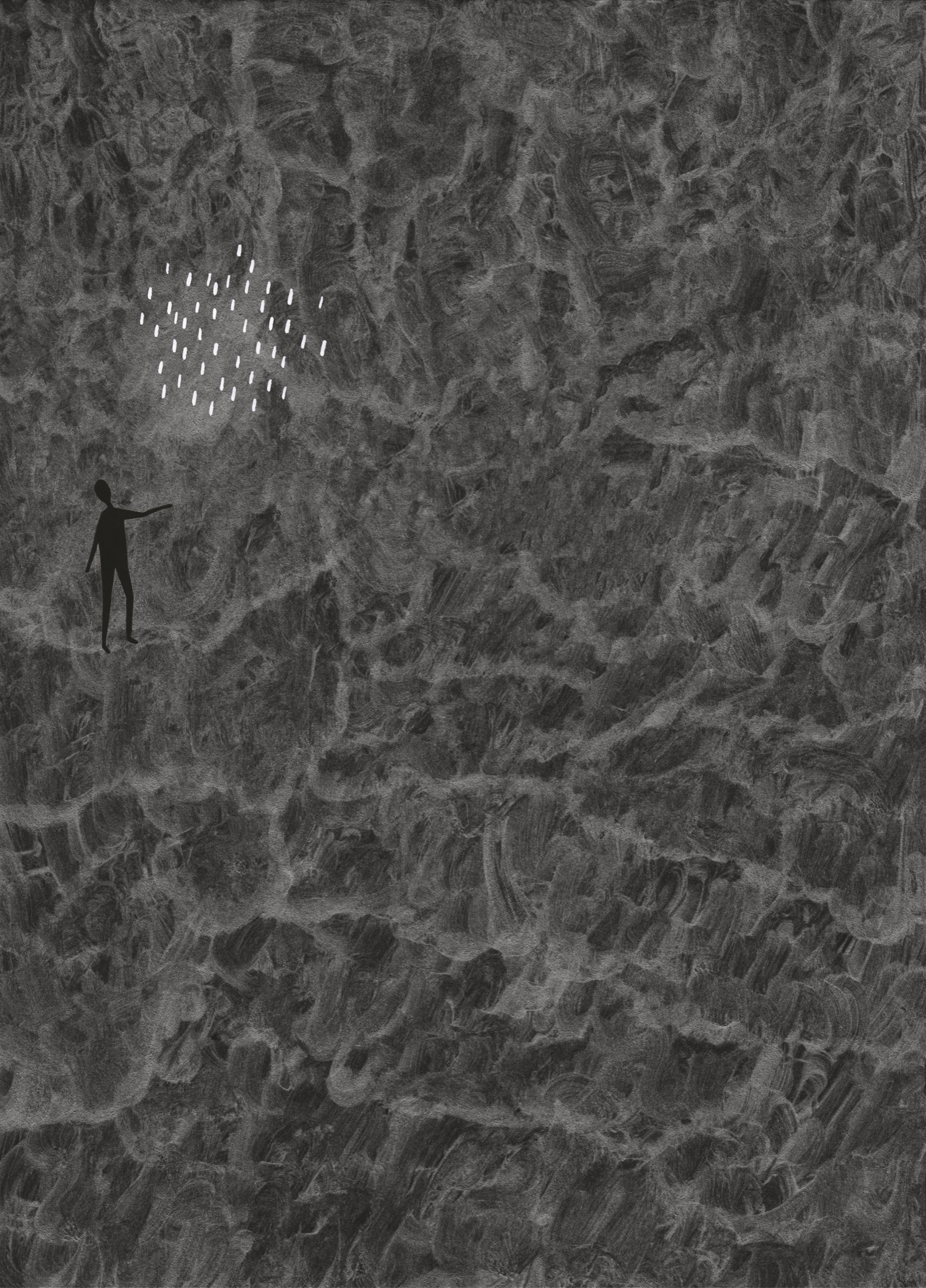
I AM MADE FROM CARBON
Y ou are made from the remnants of stars.
Strung up like fairy lights, unobtrusive, at once quaint and overwhelming in a way only the impossible can be, the stars are to thank for your singular fragile body.
When stars die, they take the equivalent of one last deep breath and then fall in on themselves, like a souffl that has been cooked for slightly too long. When this happens, they throw off their outer layers, releasing their contents to the magnificent nothingness and absolute everything that is the universe. Each year 40,000 tons of this starry dust falls to Earth; it contains the elements that will be used ceaselessly, throughout every living thing, around the entire planet.
Your body is composed of the products of such cosmic events, those remnants of burning giants. And oh, do they burn. Young stars, similar to the one you and I so fondly call Sun, are mostly hydrogen, and with centers that measure 10 million degrees centigrade, their hydrogen becomes helium, and that helium slowly builds to form carbon, nitrogen, oxygen, iron, and every element that we walk around and intoeverything that we are.
Depending on where you look, what you touch, you are changing all the time. The carbon inside you, accounting for about 18 percent of your being, could have existed in any number of creatures or natural disasters before finding you. That particular atom residing somewhere above your left eyebrow? It could well have been a smooth, riverbed pebble before deciding to call you home.

